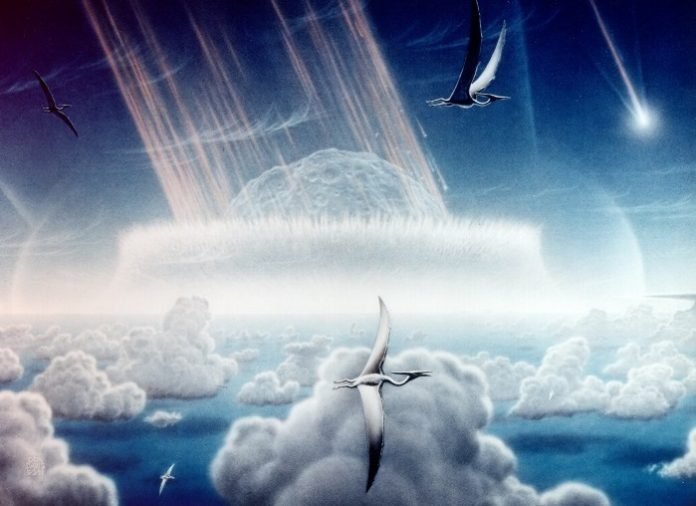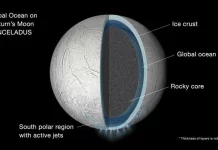
In a new study, researchers found dinosaurs were unaffected by long-term climate changes before the asteroid strike that wiped them out.
The research was conducted by researchers from Imperial College London, University College London and the University of Bristol.
Previous studies suggested that an asteroid impact with intense volcanic activity might wipe out the dinosaurs at the end of the Cretaceous period.
However, it is unknown if dinosaurs were flourishing before this, or if they had been in decline because of long-term climate changes over millions of years.
Previous fossil records suggest dinosaurs might have already been in decline because the number and diversity of species of dinosaurs decreased.
In the current study, the team modeled the changing environment and dinosaur species distribution in North America.
Their method was called ‘ecological niche modeling’, which models environmental conditions, such as temperature and rainfall, that were needed by dinosaur species to survive.
They focused on North America because many Late Cretaceous dinosaurs are preserved in the region, including Tyrannosaurus rex and Triceratops.
According to the researchers, the western half of the continent had a steady supply of sediment from the newly forming Rocky Mountains and created perfect conditions for fossilizing dinosaurs once they died.
The eastern half of the continent had conditions far less suitable for fossilization.
The researchers found that dinosaurs were likely not in decline before the massive extinction.
The findings suggest that dinosaurs were adaptable animals and that they were capable of coping with the climate changes during the last few million years of the Late Cretaceous.
They were not doomed to extinction until the end of the Cretaceous. Climate changes did not cause a long-term decline in dinosaurs.
The team also suggests that previous studies may have underestimated the number of species at the end of the Cretaceous.
The lead author of the study is Alessandro Chiarenza, a Ph.D. student in the Department of Earth Science and Engineering at Imperial.
The study is published in Nature Communications.
Copyright © 2019 Knowridge Science Report. All rights reserved.



